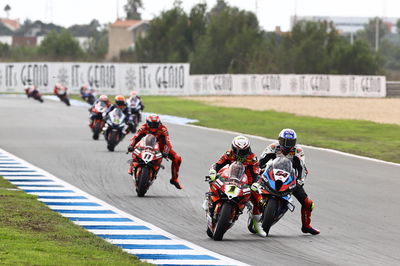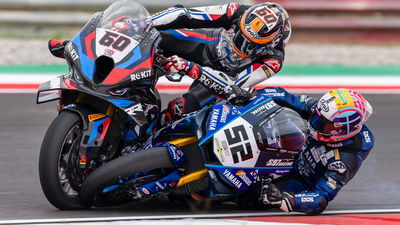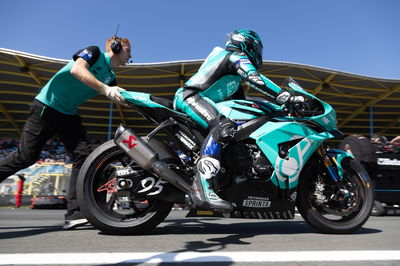WorldSBK confirms performance limiting regulations for 2025
New regulations will be introduced in the 2025 WorldSBK season “to limit the performance of the engines”.

The WorldSBK Commission has confirmed performance-limiting regulations for the 2025 WorldSBK season.
In the 2024 season, data was gathered during race weekends from all manufacturers regarding fuel flow — the rate at which fuel flows from the tank into the engine for combustion.
The aim of the data gathering exercise in 2024 was to implement a maximum fuel flow rate for the 2025 season, which has now been defined at 47kg/H (kilogram per hour), with a two gram per hour margin.
All six manufacturers — Ducati, BMW, Honda, Kawasaki, Bimota, and Yamaha — will be limited to the same maximum fuel flow rate.
In July 2025, the maximum fuel flow rate for 2026 will be determined based on data gathered during the first half of the 2025 WorldSBK season.
The basic idea of the rule is “to limit the performance of the engine,” WorldSBK says.
By limiting the rate at which fuel can flow from the tank into the engine, the rate at which that fuel can be burned is therefore also limited, and therefore the amount of power produced by the engine is theoretically limited by extension.
The new regulation can be seen similarly to the 2027 850cc regulations for MotoGP, albeit on a less substantial scale, in that both the 850cc regulations and the fuel flow regulations are aimed at limiting bike performance, and ultimately top speeds.
Other announcements
As well as the new fuel flow regulation, the WorldSBK Commission has also announced a number of other regulation changes.
Perhaps the most significant for the WorldSBK class itself is a new load test for aerodynamic winglets. The test measures deflection, or flex, of the winglet under load, using the same 50N downward force applied by a spherical steel indenter with a radius of 20mm as is used in MotoGP.
Another technical change is “a logistical measure to reduce the number of tyres used during the event”.
Additionally, riders will now have to demonstrate that they have “slowed sufficiently” when passing through a section of track covered by yellow flags.
“A rider who does not slow down in a yellow flag situation could be sanctioned more severely than currently,” WorldSBK says.
In WorldWCR, the class has fixed the maximum qualification time at 110 per cent of the fastest time.
Finally, exemptions can be granted for the age rule in WorldSSP, where the minimum age is now 18. These exemptions are granted to riders who finished in the top three of either the Moto2 European Championship, WorldSSP300, or the Stock European Championship.
Riders must be 17-years-old to be granted the exemption.












